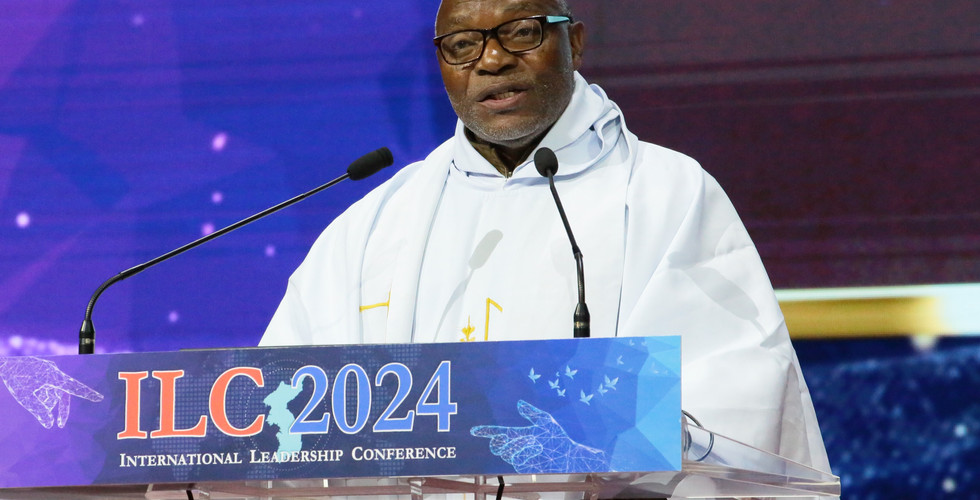ILC 2024 Calls For Peace and Unification through Faith
- khwang562
- Apr 22, 2024
- 2 min read
Updated: May 20, 2024
Gapyeong, South Korea – The role of religious leaders in advancing peace and unification was the focus of the International Leadership Conference 2024 hosted by UPF-International in Gapyeong, South Korea on April 22, 2024. More than 500 participants from around the world gathered at the Hyojeong Cultural Hall for the program “Religious Harmony and the Peaceful Unification of the Korean Peninsula.”
In his opening remarks, UPF-International Chairman Dr. Chang-Shik Yang pointed out the necessity of “a major paradigm shift in our discourse on peace.” He explained that the division of the Korean Peninsula represents the ideological conflict between democracy and communism, and more fundamentally, the opposing views of theism and atheism. He outlined the conviction of UPF co-founders, Rev. Sun Myung Moon and Dr. Hak Ja Han Moon, that “World peace and unification will start from the Korean Peninsula and spread to a Heavenly Asia-Pacific civilization that will ultimately bring peace and prosperity to all humanity.”
Dr. Yang’s remarks were followed by congratulatory messages from Bishop Edward Barnett of the Greater Grace Family Ministries in the United States, Monk Seong-jin of the Taego Order of Korean Buddhism, and Dr. Yong-cheon Song, international president of the Family Federation for World Peace (FFWPU).
Rev. Demian Dunkley, president of FFWPU-North America, entertained the audience by asking everyone to sing their favorite note, resulting in cacophony, which became music only when he, as conductor, set the tone for harmony. He demonstrated that God-centered leaders can serve as such conductors to unite humanity.
His remarks were followed by a beautifully harmonious musical performance by the Cheon-shim Global Azalea Choir.
Archbishop Johanes Ndanga, president of the African Christian Council International, pointed out the irony that the Holy Land, recognized by three major faiths, is the epicenter of interfaith strife. “God is not sectarian,” he said. “God’s purpose is for the whole world.” He called on spiritual leaders to provide guidance to political leaders. He also explained the success of Africa Spiritual Day, an initiative of the Interreligious Association for Peace and Development, in bringing together religious and spiritual leaders in different African nations to pray for divine guidance for the continent.
Hon. Ek Nath Dhakal, a member of parliament in Nepal, reported on progress towards the Asia Pacific Union proposed by Dr. Hak Ja Han Moon. It would include faith-based groups and civil society as well as governmental bodies, he explained, and pursue “the Asian way of conflict resolution, through mutual understanding and peaceful dialogue.” He said the concept has been met with enthusiasm by political leaders in Cambodia, Sri Lanka and Thailand, among others, as well as Muslim, Hindu, Buddhist and Christian leaders throughout the region.
The final speaker was Dr. Sun-Jo Hwang, chairman of the National Coalition for the Unification of North and South Korea. He posed the question, “Is sustainable world peace really possible?” and proceeded to propose five strategies toward that goal. They included: 1. God-centered values; 2. Sustainable coexistence with nature; 3. A symbiotic relationship between people and technology, especially artificial intelligence; 4. A unified Korea as a model of peace; 5. Cooperation between NGOs and governments to provide global leadership.
The event concluded with all participants singing the “Song of Unity” in perfect harmony.
By Kathleen Hwang, UPF-International
April 22, 2024



































